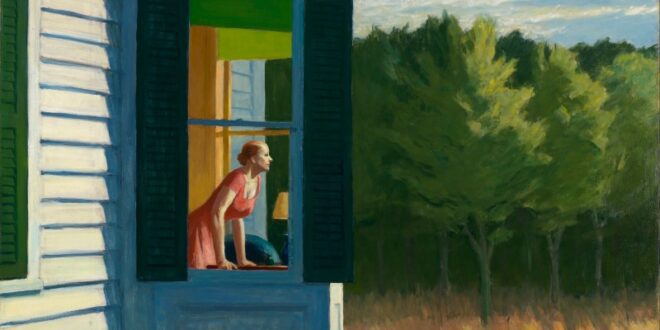Growing up in New England, there is a constant worry about not being truly part of the region. The fear that your roots are not deep enough, your attitudes are not pure, and your accent has been diluted. This feeling stems from the region’s history with the Puritans and its association with the Red Sox, as well as the rugged landscape and rocky soil.
However, this self-doubt and self-interrogation has also led to a proud tradition of art in New England. The region is known for its rich literary output, with six states and a few hundred years of history producing a disproportionate number of American classics. While New England may not be the first place that comes to mind when thinking about “noir,” it has always had a dark and elegant connection to the genre.
Nathaniel Hawthorne’s “House of the Seven Gables” kicked off the American gothic tradition, followed by Edith Wharton’s tragic notes in “Ethan Frome.” Stephen King’s sprawling and unsettling novels, though not included in this list, are definitive New England novels. Instead, we will focus on modern novels of suspense and strangeness, contemporary gothics, and a few hard-boiled crime stories from the region’s big cities.
“The Stolen Coast” by Morgan Talty is set in a village in southeastern Massachusetts and explores the lives of fugitives, hustlers, and strivers. Talty’s story collection offers a kaleidoscopic portrayal of life in an isolated pocket of Native land in modern America.
“We Love You, Charlie Freeman” by Kaitlyn Greenidge follows the Freeman family as they move from Dorchester to the Berkshires to participate in a peculiar study involving a chimpanzee. Greenidge masterfully combines elements of gothic and manor house fiction, creating a deeply disturbing exploration of racism and evil.
Adam White’s debut novel, “The Midcoast,” is a contemporary and timeless story set in Maine. It delves into clashing privileges, tight-knit communities, and the rise and fall of families, offering an intoxicating read.
“Before She Knew Him” by Peter Swanson is a modern psychological thriller set in a quiet suburb outside Boston. The protagonist’s struggles with her mental health and suspicions about her neighbor being linked to a murder create a tense and uncertain atmosphere.
Elizabeth Strout’s “The Burgess Boys” explores the dynamics of a complex family and community in a Maine town. Against the backdrop of tough northern life, Strout brings out the subtleties and tragedies of small-town New England through her hardened poetry.
Dennis Lehane’s “Mystic River” is a slow-burn investigation into human suffering, set in an isolated Boston neighborhood. Lehane’s masterpiece takes readers on a journey through the depths of memories and the consequences of past actions.
“Midwives” by Chris Bohjalian delves into a moral crisis in a small Vermont village. A midwife is forced to perform a controversial procedure, sparking a public controversy that tests her memory and conscience.
Donna Tartt’s “The Secret History” paints a twisted picture of cloistered university life and privileged students engaging in dangerous games. Tartt’s exploration of impressionable days and unexpected cruelties feels distinctly New England.
Robert B. Parker’s Boston-based Spenser series, particularly “Promised Land,” put Boston firmly on the map of crime fiction. The novel, set in the 1970s, captures the spirit of the era while providing an engaging private eye story and introducing beloved character Hawk.
“The Friends of Eddie Coyle” by George V. Higgins is considered New England’s best contribution to the crime genre. Set in the region’s underworld, the story takes readers on a hypnotic journey through the dilemmas and strategies of a small-time arms dealer.
Despite the constant worry about not being authentically New England, these authors give comfort in the ever-evolving tradition of the region’s literature. They showcase the diverse and complex nature of New England and its ability to produce captivating and distinctive stories.
 Mind Uncharted Explore. Discover. Learn.
Mind Uncharted Explore. Discover. Learn.




